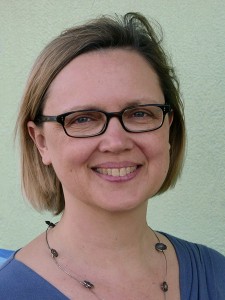Keynote Speaker 5: Dr Lara Allen - The Challenges and Opportunities of Inclusive Innovation – some insights from the Sensor CDT community
Can advanced science really make a positive difference to the lives of poor people living in countries with developing and emerging economies? Can cutting edge technology really be made available to that half of the world’s population that lives on less than $4 a day? A group of researchers, innovators and practitioners based at the Centre for Global Equality hold that the answer to these questions has to be yes, and have evolved an approach to make this possible: inclusive innovation. Inclusive in both purpose and method, the research and innovation undertaken mobilises advanced science and technology to enhance the wellbeing and economic development of the world’s rising billions, without harming the environment or the interests of future generations. Core to the approach is the co-creation of potential solutions with the people they are intended to benefit.
Genuine collaboration and effective co-creation is, however, more easily aspired to than achieved. Capabilities need to be built and ecosystems strengthened before equitable dialogues can take place. Received notions of expertise and knowledge need to be examined. Partnerships between people from academia, civil society, government and business need ongoing attention to ensure they remain mutually beneficial and productive.
Drawing on initiatives ongoing in the Sensors CDT community, this presentation explores some of the challenges faced, and opportunities made possible, when taking an inclusive approach to contributing to sustainable development through research and innovation.
|
Dr Lara Allen
|
In her role as CEO, Lara has led the evolution of the Centre for Global Equality’s approach to Inclusive Innovation. This approach entails facilitating productive collaborations between academic researchers and key actors in civil society, government and business to ensure that innovations stemming from research are appropriate for the intended end-users and their contexts, and are diffused and scaled effectively. Lara also leads the Inclusive Innovation Programme at the Department of Chemical Engineering and Biotechnology, University of Cambridge. She has twelve years of experience as an international development practitioner working as an employee, consultant and volunteer with grassroots Community Based Organisations and national and international NGOs in South Africa, Kenya, Ireland and the UK. Prior to this she was an academic with nine years of post-PhD experience at the University of Cambridge and the University of the Witwatersrand in South Africa.


